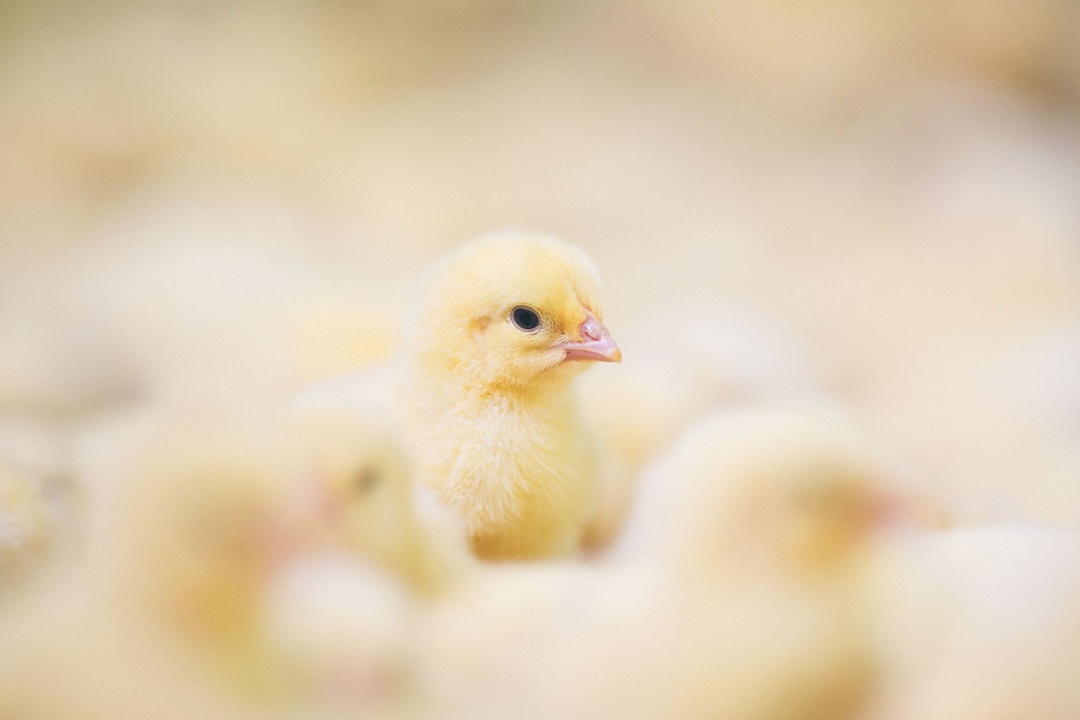Secure Food Supply (SFS) Plans help farmers and producers maintain business continuity during foreign animal disease (FAD) outbreaks by mitigating concerns that may prevent a state from granting necessary animal movement permits. SFS Plans include operating procedures for preparedness, risk assessment, enhanced biosecurity protocols, and surveillance standards. SFS Plans focus on protecting businesses from contracting FADs, facilitating continued operation during an outbreak, and helping operations return to normal activities after an infection. However, a plan is only effective if it is followed. Biosecurity audits are an essential tool to verify that enhanced biosecurity, associated with SFS Plans, are effective and consistently implemented.
Biosecurity is essential in mitigating the spread of Highly Pathogenic Avian Influenza (HPAI). Due to this, the United States Department of Agriculture (USDA), Animal and Plant Health Inspection Service (APHIS) now requires farmers to “undergo a biosecurity audit before restocking their poultry after an HPAI detection, and before receiving future indemnity payments” (APHIS, 2024, Par. 1).
This paper provides a brief overview of the current HPAI outbreak and how biosecurity audits can be used to support an effective SFS program.
HPAI’s impact on the poultry industry
The current HPAI outbreak, identified in February 2022, has impacted over 166 million birds across all 50 states and one territory. For consumers, the outbreak has caused shortages and price increases for eggs, chicken, turkey, and other poultry products. According to the American Veterinary Medical Association (AVMA), the United States has seen “record wholesale prices [for eggs] – an average of more than $8 a dozen” (AVMA, 2025, Par. 17). Additionally, some consumers doubt the safety of poultry products, leading them to purchase alternative protein sources.
For businesses, the outbreak has disrupted supply chains, reduced consumer demand, and decreased production, resulting in significant financial implications for the industry. With HPAI being a highly contagious disease in poultry, businesses must prepare for the possibility of infection. Protection measures should include both SFS Plans and regular biosecurity audits.
Biosecurity’s role in stopping HPAI
While SFS Plans help businesses prepare for FADs before an outbreak, “biosecurity measures remain the most effective strategy to combat HPAI” (APHIS, 2025, Par. 1). Failing to implement practices like cleaning, disinfection, rodent and wild animal control, controlled animal movements, and production animal isolation can provide avenues for disease introduction and result in recurrent infections at your premises. Among farms that have been infected with HPAI, “67 commercial poultry farms have been infected at least twice,” and “19 farms have been infected three or more times” (AVMA, 2025, Par. 11). Independent validation that the biosecurity protocols in your SFS Plan are implemented as intended, through regular audits, can help you identify and limit opportunities for disease. Periodic independent auditing can avoid familiarity and confirmation biases which, over time, could result in missing an evolving challenge in applying biosecurity.
USDA investment in biosecurity audits to fight back against HPAI
Despite the importance of biosecurity, encouraging farmers across the country to adhere to adequate practices is a difficult task. Some farmers don’t recognize the significance of biosecurity or have limited financial resources and time to implement sufficient practices. According to one study, biosecurity barriers included high job demands, doubts about the value of biosecurity training, equipment access, and the practicality of implementing biosecurity practices (Millman et. al., 2017). However, on February 26, 2025, the United States Secretary of Agriculture announced a $1 billion dollar strategy to curb HPAI. The strategy includes an additional $500 million for biosecurity measures and $400 million in financial relief for affected farmers (USDA, 2025, Paras. 1-2). This funding will enable more farmers to perform needed biosecurity audits and improvements across the nation.
How APHIS’ new indemnity rule will impact businesses
According to APHIS’ new rule, “if a commercial poultry farm affected by HPAI wants to restock their poultry and be eligible for future indemnity on that restock, the premises will be required to pass a biosecurity audit by APHIS” (APHIS, 2024, Par. 5). This rule pushes businesses previously infected by HPAI to correct or enhance their biosecurity practices to prevent further infections that negatively impact the industry. The rule also ensures that indemnity payments are not given to businesses that fail to practice proper biosecurity, as producers “who do not make corrections recommended in APHIS’ biosecurity audit will not be eligible for indemnity payments if the premises experiences future infections within the same outbreak” (APHIS, 2024, Par. 5).
The benefit of using biosecurity audits to support SFS Plans
Having an SFS Plan in place prior to a FAD outbreak or infection is crucial to maintain business continuity. A pre-existing SFS Plan makes you eligible to request movement permits out of a disease control area during an outbreak. Supporting SFS Plans with regular biosecurity audits, outside of and during a disease outbreak, will help regulatory authorities verify that normal and enhanced biosecurity is implemented as planned. Verifying that biosecurity procedures are being followed will help protect your business financially if a FAD infection does occur at your premises. Conducting regular biosecurity audits can help you:
- Identify, validate, and improve gaps in existing biosecurity practices before an outbreak
- Reduce the risk of disease outbreaks that disrupt business continuity
- Increase the likelihood of remaining eligible for future indemnity payments in the event of an HPAI infection
- Foster consumer confidence in your products through transparent marketing
Interested in building a SFS Plan or conducting a biosecurity audit?
SES has over two decades of experience with FAD mitigation, prevention, and biosecurity measures for the livestock industry. We can help your organization develop SFS Plans and can conduct biosecurity audits to help you stay protected from FADs. Contact us at info@ses-corp.com or visit https://ses-corp.com/ to learn more.
Works Cited
AVMA. (2025, March 4), “USDA announces additional $1B toward H5N1 efforts,” https://www.avma.org/news/usda-announces-additional-1b-toward-h5n1-efforts
Millman C, Christley R, Rigby D, Dennis D, O’Brien SJ, Williams N. (2017, June 1), “Catch 22: Biosecurity awareness, interpretation and practice amongst poultry catchers.” Prev Vet Med. 141:22–32. doi: 10.1016/j.prevetmed.2017.04.002, https://pmc.ncbi.nlm.nih.gov/articles/PMC5450931/
USDA. (2025, February 26), “USDA Invests Up To $1 Billion to Combat Avian Flu and Reduce Egg Prices,” https://www.usda.gov/about-usda/news/press-releases/2025/02/26/usda-invests-1-billion-combat-avian-flu-and-reduce-egg-prices
USDA APHIS. (2024, December 12), “APHIS Announces Updates to Indemnity Program for Highly Pathogenic Avian Influenza on Poultry Farms,” https://www.aphis.usda.gov/news/agency-announcements/aphis-announces-updates-indemnity-program-highly-pathogenic-avian

